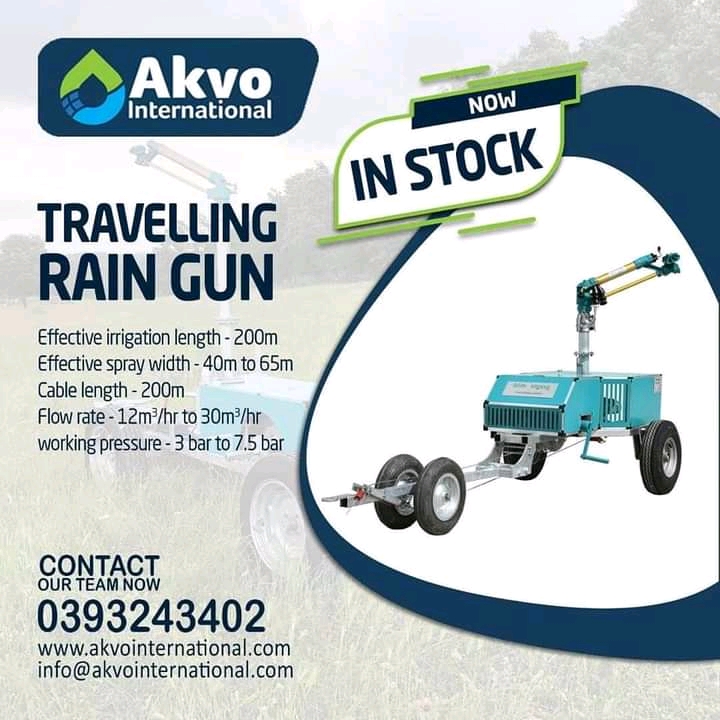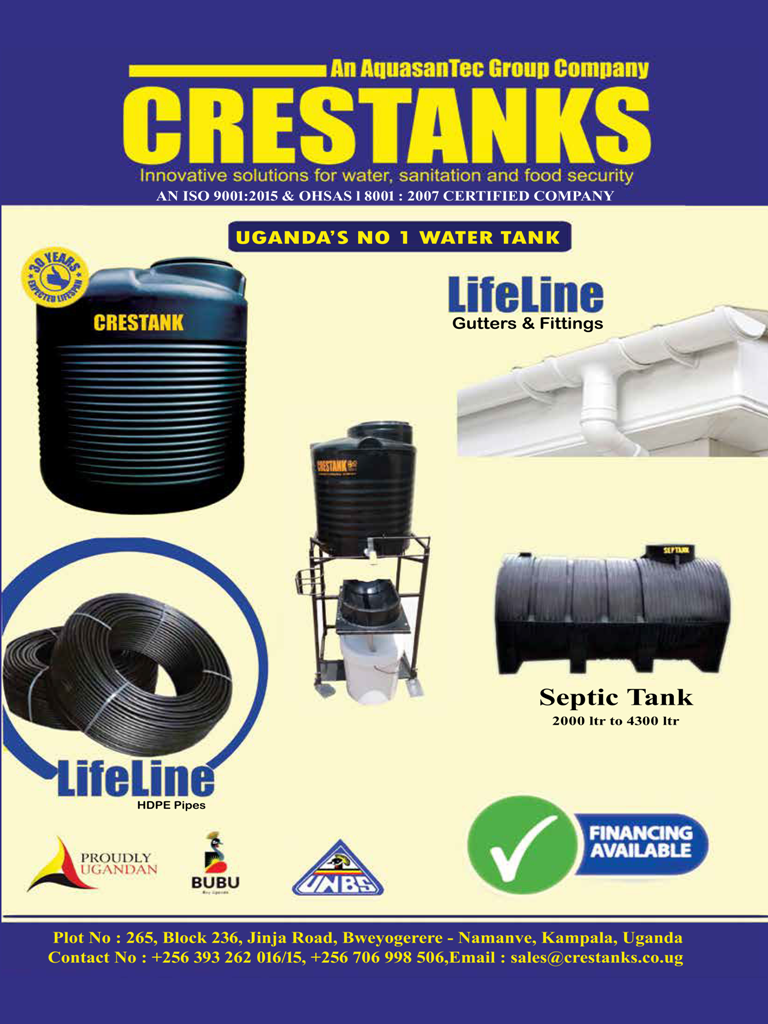By Andrew Cohen Amvesi
Arua. Refugees and the local community of Rhino Camp settlement in Arua District are breathing a sigh of relief following the rehabilitation of their boreholes.
At least five boreholes which were broken down have been rehabilitated by the Pentecostal Assemblies of God (PAG), an operational partner at Rhino Camp Refugee settlement with funding from PAG Church of Canada.
According to Moses Sheshmond Esalu, the Emergency Coordinator PAG Uganda, the support offered was at first aimed at drilling two boreholes but with consultations and guidance from the Water, Sanitation and Hygiene (WASH) working group, it was resolved that no more boreholes should be drilled in Rhino Camp due to the existing number of shallow wells.
“So with that, PAG was requested to identify boreholes that were broken down in communities that had the greatest need. We were then able to identify five needy communities,” Esalu said during an interview on Friday.
He identified the communities that benefited from the programme as being; Siripi, Ariwa, Katiku, Odobu Primary School and Rhino Camp Secondary School.
“We were able to rehabilitate the five boreholes in those communities between March and July, 2019. The cost of rehabilitating varied from the needs assessment of each borehole,” Esalu explained.
In a related incident, Esalu noted that PAG earlier on, partnered with the Romania Church through Marius Bradean, a Romania Church Missionary in Uganda, to drill two boreholes for Panduru community in Aroi sub-county and Lumara community in Vurra sub-county, Arua District.
He said the cost of drilling the borehole at Panduru was worth Shs15m while that of Lumara was to the tune of Shs25m since the first site had no water.
Community members speak out
At Simbili village in Siripi Zone, Ofua 4 settlement, James Angelina, 30, a South Sudanese refugee, said the rehabilitation of their borehole has saved her from wasting time at distant water points.
“I used to take at least four hours waiting to fetch a jerrycan of water and it would take me almost the whole day to fill-up the five jerrycans of water I normally use at home. But with this borehole, I now take less than 30 minutes to have my jerrycans filled,” Angelina said.
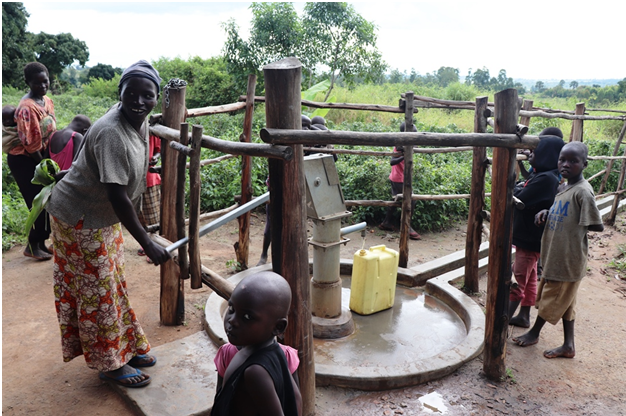
She thanked PAG for coming to their aid, saying the problem of water in the village has now been solved.
Mary Khamis, 26, another refugee in Simbili village said before rehabilitating the borehole, she used to trek for about two kilometer’s to the nearest piped water source where women were found of quarreling and at times, fighting over water.
Mary said she later resolved to start waking-up at dawn to walk through the busy path to the water point to avoid the long queues at the facility.
“When I realized that my three children were reaching school late due to lack of water, I decided to start waking up at 4:00a.m every morning so that I can come back home early. Now I’m very happy that I can fetch water near my home,” she said.
Meanwhile at Ariwa borehole in Ariwa village, Odupi sub-county with Rhino Camp settlement, Stella Amviko, a resident says from the time the borehole broke down, they were relying on water from the stream located about half a kilometer from her home.
She added that when it rains, the stream floods; thus; forcing the residents to stay without water until the level reduces.
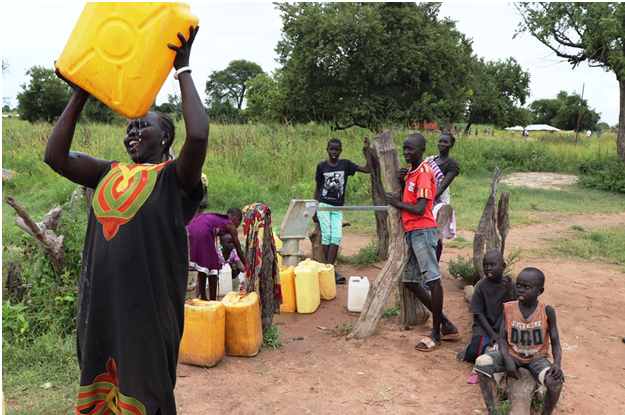
Amviko says those who insist on fetching the water as dirty as it is, in most cases use it without boiling. Consequently, cases of Bilharzia were so common in their village.
“Today, we are all happy that we are fetching clean and safe water because of PAG intervention. God should help them to get more money to do the same for other communities that are suffering the way we used to,” Amviko prayed.
Similarly, Alfonsio Anguzu, the Panduru village chairperson in Aroi sub-county, Arua District whose community benefited from a borehole after years of depending on water from shallow wells, was thankful to God for bringing PAG to their rescue.
Anguzu narrated that they used to several water problems in the area especially during the dry season.
“When it is dry season, there is scarcity of water with many women sleeping at shallow wells and during the rainy season. Dirty water flows into the wells and this causes several health complications with many people suffering from diarrhea, bilharzia and typhoid among other water borne disease in my village,” Anguzu explained.
He, however, observed that when PAG identified the community and drilled a borehole in place, lives of people changed as they abandoned the use of shallow wells for the clean water at the borehole.
According to Anguzu, an estimated population of 1,000 people from the villages of Panduru, Ojipi A and B, Odruvu, Yiba and some neighbouring villages in Maracha District now depend on the borehole.
Beatrice Candiru, a resident of Panduru village, said they have formed a water user committee to ensure proper usage and maintenance of the borehole.
She said the committee led by the village chairperson normally charges Sshs1, 000 from each family per month for the maintenance of the borehole as part of its ownership.
How the rehabilitated boreholes are keeping children in school
Bernard Adiga, the deputy head teacher of Rhino Camp secondary school said when the school borehole broke down in November 2018, it was difficult for them to keep students in class.
He noted that in the absence of a borehole at the school, students used to walk long distances to River Nile and other boreholes in the neighbouring communities to get water. But in the process, they do some other unnecessary things.
“Some sneak for discos and end up coming late. Meanwhile, those we would officially send to go and fetch water from distant boreholes end up clashing with members of the community,” Adiga said.
“We would also be forced to pay the management of those water sources. In most cases, we were charged highly on grounds that we were consuming a lot of water. As a school, we need water for cooking and the students also need water for drinking and their personal use. So, those water management committee members would demand a lot of money from us,” Adiga said.
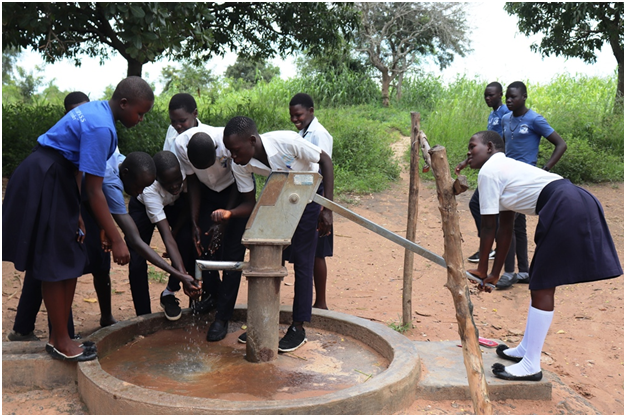
For this reason, Adiga said whenever the borehole breaks down, the school struggles to control students’ discipline.
However, he noted that since PAG rehabilitated the school borehole in May this year, students have been in school attending classes with no excuse of going to look for drinking water.
“When the borehole got spoilt, we really suffered; we could go up to the River Nile to look for water. In the neighbourhood, they used to chase us from water points. Now, we can get water within and that has kept us in school,” said Susan Poni, a Senior Three student of Rhino Camp S.S.
Jal Ruach, a Primary Six pupil of Odobu Primary School, said since PAG rehabilitated their borehole, they quench their thirst during meal breaks at school as opposed to those days when they used to go on looking for drinking water during class hours and at times, report back to school late.
OPM commends PAG for the intervention
Jonathan Matata, the Rhino Camp Assistant settlement Commandant in the Office of the Prime Minister (OPM), says PAG is one of their old partners that has been in Rhino Camp in the different sectors of WASH and peaceful coexistence.
“We have been partnering well generally since 2013 when we started receiving the new influx of refugees, PAG came in to undertake various activities especially in areas of water supply, hygiene and sanitation,” Matata said.
“In terms of water supply, Rhino Camp has had many water challenges. But we needed to have minimum standards in terms of water per person per day. Previously, we were doing very badly and this has greatly improved from 10 litres per person per day to 24 litres nowadays,” Matata added.
He said they have now made good strides in terms of water supply with the intervention of PAG especially in drilling and rehabilitating boreholes in Rhino Camp Settlement.
“This intervention has generally reduced on conflicts at water points and issues to do with diseases have reduced. So, the coming of PAG was a blessing for us to be able to be part of the refugee response in Rhino Camp Refugee Settlement,” Matata stated.
Donor message
Marius Bradean, the Romania Church Missionary in Uganda who partnered with PAG through the Pentecostal Church, said their main purpose of coming to the community of West Nile is to alert the Kingdom of God in the area.
“We intend to make the good news known to every tribe, people and nation everywhere. Even for those who are refugees in Rhino Camp, Bidibidi and the rest of the camps around more especially the people who live in West Nile need to see that God is working to change their lives. We must be the agents of change everywhere in West Nile,” Bradean stressed.
He said currently, they understand that there is need to continue working for the development of the area through establishing PAG churches to save more souls.
“Why we do this project of boreholes and we want to continue is because drilling or rehabilitating a borehole in the middle of the community which has many needs is like a bridge. In another way, it is a source of clean water that gives health and better condition for everyone in that place,” Bradean said.
PAG challenges and future plan
According to Moses Erik Okillan, the PAG project officer, the issue of operation and maintenance is the main challenge with water supply in the camps.
He said currently, all partners are encouraged to secure funds to focus on maintenance of existing water systems.
“In some of the areas, the water production systems are good but where they are bad, we are hopeful that if God opens the way, we shall intervene in the extension of water systems to other nearby villages which still have some challenges,” Okillan said.
He observed that there are also some boreholes which keep on breaking down, adding that in case they get some funding, they will rehabilitate them.
Background
Over the years, PAG has been resourceful in implementing humanitarian activities at Rhino Camp Refugee Settlement.
PAG started with support from Pentecostal Assemblies of Canada through their development arm dubbed – Emergency Relief and Development Overseas, to extend support in WASH to refugees in Odobu Primary School during the influx of refugees at the school by constructing two VIP Institutional drainable latrines in 2014.
PAG also supported 1, 307 people comprising of women and girls in out of school with soap, sanitary pads and hand washing facilities.
With additional support from Netherlands between November 2016 and January 2017 of €26,000 (Shs105 billion) PAG supported 2,100 beneficiaries especially girls and women with sanitary kits comprising of soap, pads and wrappers.
The funds were also used to sensitise 4, 000 persons of concern on hygiene and 500 people were reached through psycho-social support in the project in Ofua 1, 2 and 3 among other things.









